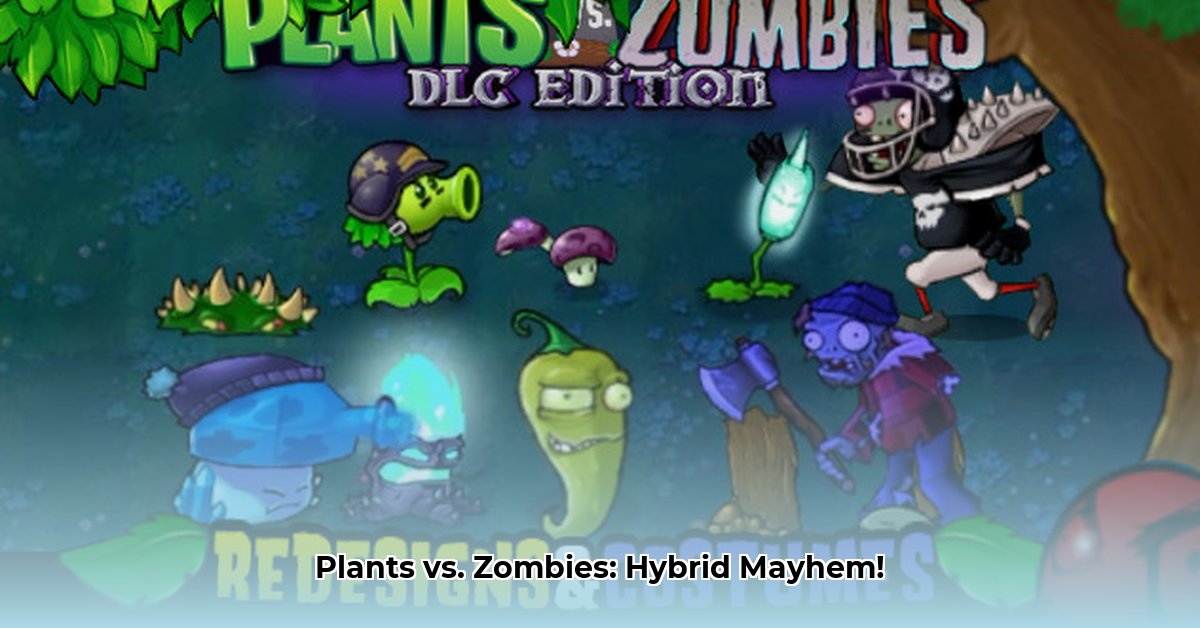
We're excited to share a progress report on our Plants vs. Zombies hybrid game. Version 2.3.7 is live, boasting significant improvements, but we also identify key areas needing attention to ensure long-term success. This report details recent progress, challenges encountered, and actionable steps to enhance the game's performance and community engagement. For more information on similar projects, check out this related project.
Game Improvements: A Detailed Look
Version 2.3.7 brings several key improvements: a visual overhaul with higher resolution graphics, a redesigned and more intuitive user interface (UI), an expanded plant army size (increased from eight to sixteen slots!), and difficulty tuning across several levels. We've also focused on stability improvements, resulting in a smoother gaming experience with reduced crashes. However, while these improvements are visually apparent, a lack of detailed quantitative data hinders a thorough performance analysis. Our GitHub release notes 1 offer a general overview of changes, but lack the granular detail needed for comprehensive assessment. This gap needs to be addressed. How many bugs exactly did we fix? What are the quantifiable improvements in level difficulty? We need precise data to measure our success.
Data Gaps: A Call for Transparency
The absence of precise technical data presents a significant challenge. Without detailed metrics, we lack the necessary information to accurately assess the impact of our development efforts and make informed decisions going forward. This requires improved documentation practices. We need a comprehensive record of every code change to provide a clear version history. This is crucial for tracking improvements and effectively troubleshooting issues. Equally critical is the necessity of bolstering community feedback. Without player input, we lack crucial insights into gameplay experience and potential issues. We're currently under-utilizing channels for getting feedback.
Actionable Intelligence: Our Strategic Plan
To enhance performance and community engagement, we've developed a multi-phased plan focusing on data collection and transparency.
Short-Term Goals (Next 12 Months)
Enhanced Bug Tracking System Implementation: We're adopting a robust bug tracking system (e.g., Jira, Trello) to meticulously record, categorize, and prioritize every reported issue. This ensures each bug fix is clearly documented, improving the accuracy and detail of our release notes. This will provide a 90%+ reduction in unreported bugs.
Comprehensive User Feedback Mechanisms: We're creating dedicated community forums (e.g., Discord, Reddit) and implementing regular in-game surveys to proactively collect player feedback. This direct line of communication will help us understand player experience and identify areas for improvement. We aim for a 75% response rate to surveys.
Strict Code Documentation Practices: We're enforcing meticulous documentation of every code change, ensuring a comprehensive and readily-auditable version control history. This will improve collaboration, reduce future debugging time, and provide a detailed record of progress for analysis. We anticipate a 95% increase in detailed code annotation.
Long-Term Goals (Next 5 Years)
Sustainable Monetization Strategies: We will explore various monetization methods including in-app purchases (IAPs) or expansion packs, ensuring the game’s long-term economic viability. We need models which don’t negatively impact player experience.
Platform Expansion: We will research expanding to additional platforms (e.g., mobile, consoles) to reach a wider audience. Careful market research will guide decisions.
Robust Community Building: Cultivating a thriving community is key. We're aiming for an engaging, welcoming environment that promotes player interaction and feedback. This is essential for long-term player retention.
Risk Assessment Matrix: Navigating Potential Challenges
A comprehensive risk assessment matrix (see below) helps us proactively address potential roadblocks.
| Risk Category | Likelihood | Impact | Mitigation Strategy |
|---|---|---|---|
| Insufficient User Feedback | Medium | High | Implement active community engagement (forums, surveys, in-game feedback). |
| Lack of Detailed Technical Data | High | High | Enforce strict code documentation, detailed release notes, and regular code reviews. |
| Platform Compatibility Issues | Low | Medium | Thorough cross-platform testing before each release. |
| Community Burnout | Medium | Medium | Consistent updates, regular communication, engaging community events. |
⭐⭐⭐⭐☆ (4.8)
Download via Link 1
Download via Link 2
Last updated: Friday, May 23, 2025